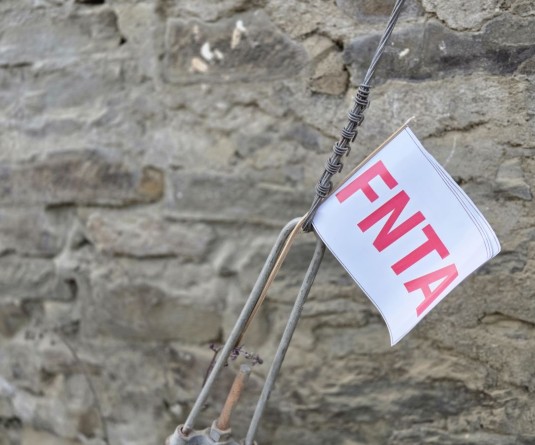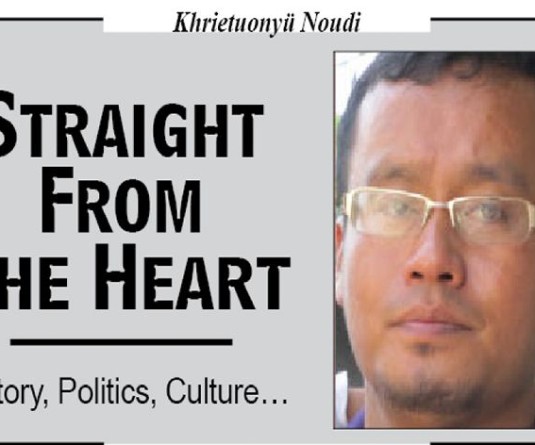
Robert A Silverstein
In the March 27, 2017 issue of The Morung Express and the March 28, 2017 issue of the Nagaland Post is an article by Sedevi Angami titled, “Customary law – review needed?” In the article, the author lists many questions that must be addressed to revise the customary law of the tribes of Nagaland. The author seems to imply, through all the issues he brings up, that such a revision is necessary. As a retired American lawyer, I have an appreciation for the relevance of most of his questions and assertions. The article is well written.
Author lays out the difficulty of the revision project. Toward the end of the article, he states, “The task will be huge and so if they [those experts in different fields that the author recommends take part in the revision] could start by at least embarking on 10 most contentious issues in Naga society today, that would be a beginning.
“Not to do so would be postponing inevitable future chaos....” There is one serious problem with the author's article, and it is the fact that he presumes a political position that is antithetical to most Nagas today and without a final solution to this issue, it is a waste of time starting the process of revision.
Toward the beginning of his article, he states some of the drawbacks to the Indian legal system: “The Indian legal system can be expensive, exhausting, difficult to access, [etc].....”
Later on in his article he asks, “When do we apply customary law and when do we apply the Indian legal system? Is there a role for having a hybrid system that is unique for Naga society?”
The above statement and questions indicate that the author has presumed that the state of Nagaland will continue to be a state within the nation of India. That happens to be the position that I accept will be the case, but the vast majority of Nagas do not yet accept that fact, at least if asked the question directly, “Do you want to stay within the nation of India or do you want to have a separate sovereign Naga nation?”
It is my contention that until that issue is finally decided it is premature to start a revision of Naga customary law. The latest example of that is the recent bandh and resulting violence over the institution of Article 243T of the Indian Constitution, mandating that women get 33% of the seats on ULBs. The tribes, en masse, protested that 243T conflicted with Article 371A of the Indian Constitution, which gives special status to Naga customary law, and that the vote, scheduled for February 1st, be postponed. We who followed those events closely know the result: the vote never took place, there was substantial violence and damage to property, three died, and a chief minister resigned.
I will risk mentioning a bit of Indian common law, to support my view that until the nationalism question is definitively answered it is premature to try to revise Naga customary law. In 1973, the Indian Supreme Court came down with a decision in the case of Kesavananda Bharti v. State of Kerala (1973), 4 SCC 225. It laid down the principle that there are certain parts of the Indian Constitution that are so fundamental to it that amending those parts was itself unconstitutional, a radical view of the power of the judiciary. The principle is called the “basic structure” principle. That to amend any of these fundamental parts of the constitution would not be amending the constitution but in effect would be fundamentally changing it, that is, such amendments would in a sense be acting like a constituent assembly (similar to the one that promulgated the constitution from 1946 to 1949), and that the amendment process was not meant to allow that.
Here's the significance of that principle. The Supreme Court over the years has defined what parts of the Indian Constitution are part of the “basic structure,” and cannot be amended in any substantial way. And one of those parts is Article 14, “The State shall not deny to any person equality before the law or the equal protection of the laws within the territory of India.”
If Article 14 is part of the “basic structure” of the Indian Constitution, and it is, then Article 371A will not overrule Article 243T, and the election of women to ULBs is inevitable.
That is, unless Nagaland is no longer a part of India. And just as the principle of the “basic structure” will affect the issue of women on ULBs, it may affect many other issues. (Equality is not the only concept that is part of the “basic structure.”
So is “democracy,” “secularism,” “the rule of law,” and more.) In recent days, the Centre clarified the Nagalim issue, and it came down against the Naga demand for a greater Nagaland. It is only a matter of time before the Centre is forced to announce its decision on whether the Naga demand for a sovereign Naga nation will be granted. I have argued that such a separate nation will be denied to the Nagas. But whether I'm right or wrong, it is surely premature to move forward on any revision of the Naga customary law, and in fact it is premature to move forward on any major project in Nagaland, until the issue is decided.
Whether Nagaland is a state within India or a separate nation will affect almost every important decision that the Nagas must address in the coming months and years.
(The 2018 elections for a state Assembly could be an election for a national Parliament!) In my opinion, a separate Naga nation is highly unlikely, but as long as the vast majority of Nagas believe the issue of Naga sovereignty is alive, any project like the one suggested by the author must be put on hold.





